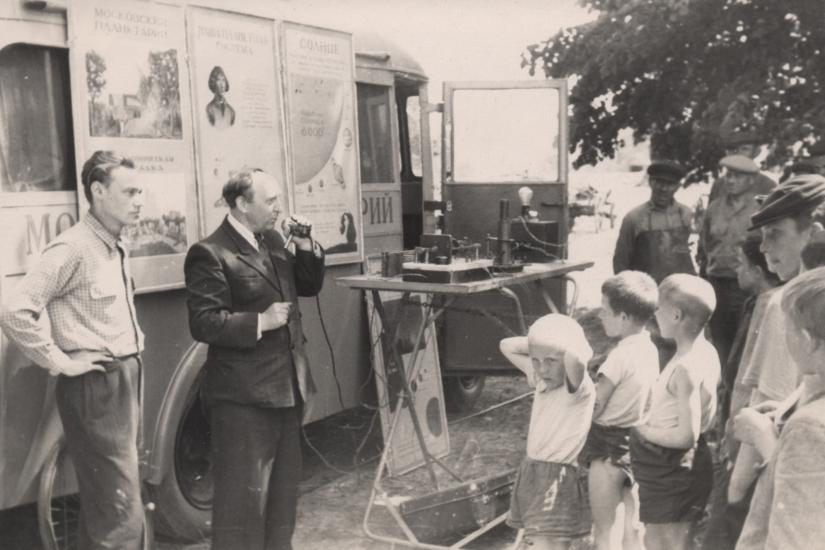
We are happy to announce the next “Visegrad Scholarship at OSA” presentations
Znanie Society and Its Allies: When the Public Communication of Knowledge Is a Propaganda Campaign
by Alexey Golubev, Associate Professor, University of Houston
During the Cold War, the Soviet Union developed the largest system for public communication of knowledge in the twentieth century. Spearheaded by the learned society Znanie (Knowledge), this system enlisted hundreds of thousands of Soviet intelligentsia members to disseminate knowledge to lay audiences throughout the USSR via public lectures and popular publications. This system was intentionally designed as a modern propaganda campaign, a fact recognized by the staff of the RFE/RL Research Institute due to their own professional involvement in propaganda activities aimed at the Eastern bloc. In my presentation, I will discuss how the OSA collections related to the public communication of knowledge in the USSR help us understand the propaganda aspects inherent in any (but, first of all, Soviet) effort to produce universal scientific literacy.
AND
Communicating Open Society: George Soros and the Post-Cold War Information Order
By Stanislv Budnitsky, Visiting Assistant Professor, Russian and Eurasian Studies Program, Colgate University
Since the late 1970s, financier George Soros has donated $32 billion toward advancing his vision of an open society—a liberal socio-political order based on democratic governance, free exchange of ideas, and respect for human rights. A significant proportion of Soros' contributions has supported information initiatives across the world, including training journalists, building telecommunication infrastructure, publishing books and periodicals, and equipping media organizations. This project aims to understand these diverse initiatives within the overarching ideational and institutional framework of the Open Society to analyze their collective impact upon the post-Cold War information landscape. The presentation will utilize the OSA holdings from the Cultural Initiative (1988-1995) and the International Science Foundation (1992-1996)—two of the three Soros-funded Russian institutions alongside the Open Society Institute-Russia (1995-2003)—to illustrate how communicating the ideals of an open society has influenced post-Cold War media and political realities.
The presentations will be held at 2:00 p.m. on Wednesday, July 24, 2024, in the Meeting room at Arany János u. 32, Budapest, and online.
The link to the Zoom meeting is: https://ceu-edu.zoom.us/j/91348744000?pwd=bZlKVSb6RBKxMVdarterblg4bfcFSv.1